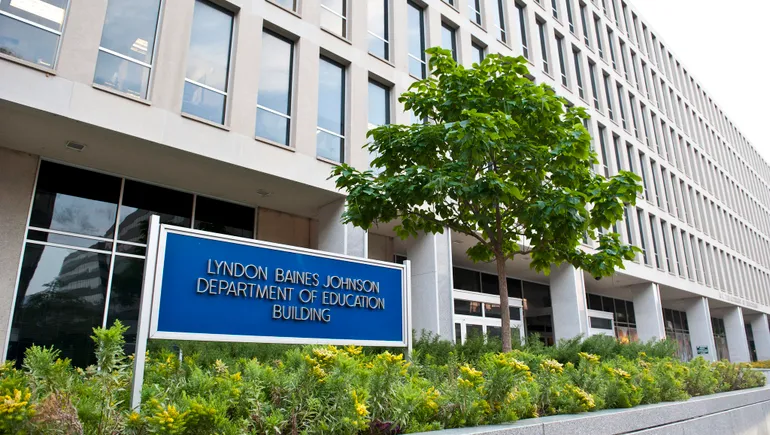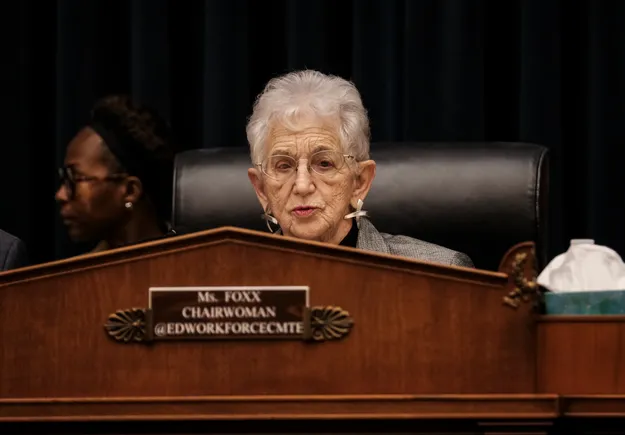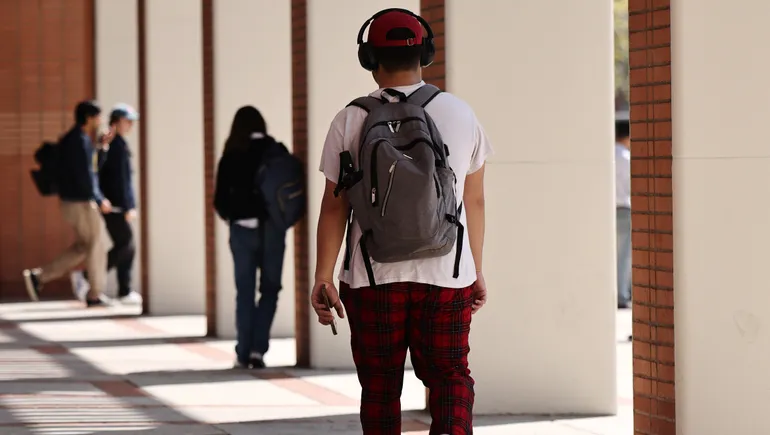House lawmakers and student financial aid experts widely panned the U.S. Department of Education’s bumpy rollout of the revamped Free Application for Federal Student Aid during a congressional hearing Wednesday.
In late 2020, Congress passed the FAFSA Simplification Act, which was meant to make it easier for students and their families to complete the notoriously difficult form. In order to make changes to FAFSA, the Education Department released the form in late December, about three months later than usual.
Since then, the rollout has been plagued by technical difficulties, further delays and last-minute adjustments. Amid the issues, the number of high school seniors who have completed the FAFSA is down a whopping 40% through March 29 compared to the year before, according to a recent analysis from the National College Attainment Network.
The House Subcommittee on Higher Education and Workforce Development held the hearing with financial aid experts to understand how the messy rollout has impacted colleges and students. The hearing did not include representatives from the Education Department, and the agency did not immediately respond to a request for comment Wednesday.
During the hearing, Republican and Democratic lawmakers alike criticized the Education Department’s handling of the revamped form.
Rep. Bobby Scott, the ranking member of the House’s full education committee, noted that the goal of the FAFSA Simplification Act was to reduce the number of questions students and their families had to answer and increase the amount of aid they could receive.
“Regrettably, it hasn’t worked out that way,” the Virginia Democrat said. “So far, no one on this committee on either side of the aisle is happy with what’s going on.”
How is the rollout impacting colleges?
The delayed release of the form hasn’t been the only issue with the rollout. On Jan. 30, the Education Department announced that it wouldn’t transmit FAFSA applicant data to colleges until March.
“That day will live in the collective trauma of most financial aid offices across the country,” said Justin Draeger, president and CEO of the National Association of Student Financial Aid Administrators.
That’s because colleges were expecting to receive FAFSA applicant data that day for roughly 3 million students, he said.
Institutions rely on this information to create their financial aid offers ahead of the traditional student commitment deadline of May 1. Because of the delay, however, many colleges have pushed back their commitment deadlines and other key dates.
Throughout this financial aid cycle, Draeger said, announcements from the Education Department have slipped into a pattern.
“What’s that pattern? Well, it’s a last-minute communication from the Department of Education, throwing schools and students and families into chaos,” Draeger said. “And it’s bad news buried in celebratory publicity.”
Altogether, the issues have coalesced into a “crisis of credibility” for the Education Department, he added.
The bad news hasn’t ended there, though Draeger credited the agency with recently being more candid in its announcements.
The Education Department told colleges Tuesday that roughly 30% of FAFSA forms may have been affected by miscalculations and data errors. The department said it would begin sending reprocessed records to institutions by May 1.
Additionally, up to 16% of FAFSA applications need to be corrected by students. The Education Department said it plans to begin allowing students to correct their forms early next week.
“Here is the hard truth,” Draeger said. “When you have a crisis of credibility, schools don’t trust that more errors won’t be found tomorrow, that the data they have today is credible, or that guidance won’t change tomorrow.”
The issues have hit financial aid offices hard.
The University of North Carolina at Chapel Hill, for instance, hasn’t sent out a single financial aid offer, according to Rachelle Feldman, the institution’s vice provost of enrollment.
Feldman said the university has received only 60% of the records it normally would at this point in the year. Further, files from the Education Department showed nearly half of the university’s records would need to be reprocessed, she added. Another 20% of the records were rejected because of missing signatures or other issues.
“Our financial aid professionals and schools feel like the rug keeps getting yanked out from under them,” Feldman said.
Feldman said she is hopeful that her university has found some workarounds to ongoing issues, as UNC-Chapel Hill also collects student financial information through the CSS Profile. The lengthy form is used by hundreds of colleges to get a full understanding of their applicants’ financial situations.
She said she hopes the university can start getting financial aid offers out in May — usually when students make their college selections. Mark Kantrowitz, a financial aid expert, said he’s been recommending that colleges push their decision deadlines to June 1.
Financial aid experts stressed that these issues stood to harm low-income and first-generation students the most.
“The delayed opening and processing and reprocessing of applications means most high school seniors have yet to receive an aid offer. They are being asked to commit by May 1,” said Kim Cook, NCAN’s CEO. “Our greatest fear is that they will decide they can’t.”
Who is to blame?
Although the committee’s members were largely critical of the rollout, Republicans took a harsher stance toward the Education Department.
Rep. Glenn Grothman, a Republican from Wisconsin, asked Draeger if anyone at the agency should lose their jobs.
“If there was a financial aid director or even a college president that delayed financial aid on their campus for up to six months, the professional price that would be paid for that would be pretty steep,” Draeger replied. He said the committee should explore whether there should be ramifications.
Republicans on the committee also took aim at the Education Department’s broader policy agenda during the hearing, arguing that the agency’s other efforts have distracted officials from the FAFSA rollout.
“During the Biden administration, the department has certainly been busy,” Rep. Virginia Foxx, a North Carolina Republican who chairs the full education committee, said during the hearing. “Of course, being busy does not mean being effective.”
Over the last year or so, the Education Department has focused on several policy priorities, including unveiling a new income-driven repayment plan, discharging student debt from borrowers who were defrauded by their colleges, and developing a new proposal to provide student loan forgiveness.
But higher education experts have expressed concerns that the agency’s Federal Student Aid office, which oversees the federal government’s student loan portfolio and was tasked with updating the FAFSA, hasn’t had the funding needed to carry out its responsibilities.
The latest spending package passed by Congress gives the Federal Student Aid office a little over $2 billion — far short of what President Joe Biden requested, Inside Higher Ed reported.
Some lawmakers have also been questioning whether a contracted vendor played a role in the bungled rollout.
Sens. Elizabeth Warren and Ron Wyden, both Democrats, sent a letter Wednesday to the chief executive of General Dynamics Information Technology, which received a $121.8 million contract to revamp the FAFSA system.
“It now appears that your efforts to date have been a near-total failure and that the FAFSA problems caused by this failure are harming millions of students and hundreds of colleges,” the lawmakers wrote.
They asked what the vendor promised under the contract, whether company officials warned the Education Department about concerns with the new FAFSA website, and whether it had received any penalties for failing to meet its obligations.
#Crisis #credibility #FAFSA #rollout #panned #congressional #hearing










